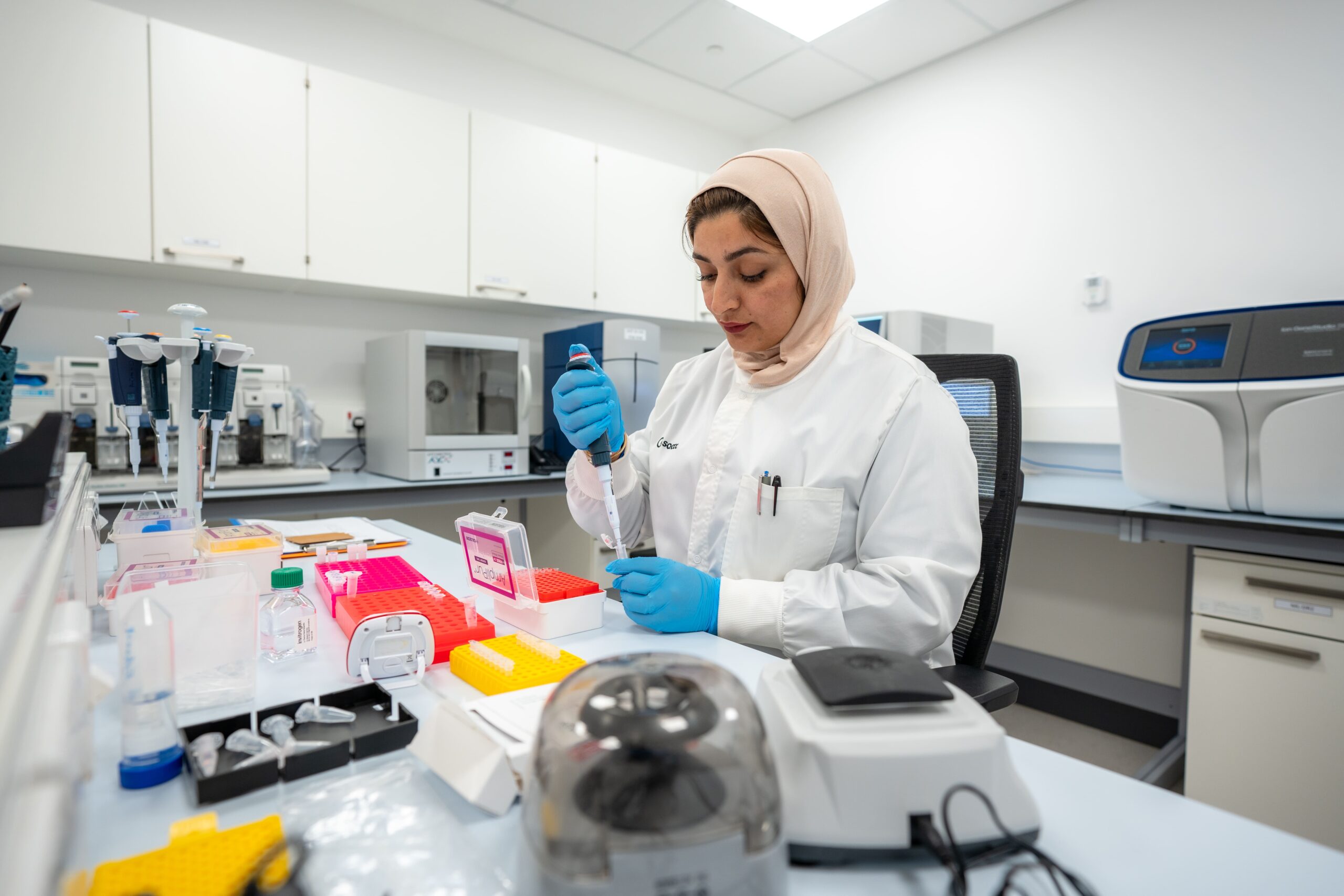Gene Variants and Chemotherapy-Induced Toxicity in Omani Patients with Gastrointestinal Tumors
A research study conducted at the Sultan Qaboos Comprehensive Cancer Care & Research Centre (SQCCCRC) discovered that certain genetic variants in the DPYD gene could predict severe toxicity reactions among Omani patients with gastrointestinal tumors, including neutropenia and diarrhea.
Dr. Ahmed Al Ghoche, Senior Specialist Oncologist, Gastrointestinal Cancer Program at SQCCCRC and principal investigator of the research study mentioned: “Out of the 53 Omani cancer patients with gastrointestinal cancers treated with FP chemotherapy, 28 experienced associated toxicities, while 25 did not.” The research study, titled “DPYD Gene Variants and Chemotherapy-Induced Toxicity in Omani Patients with Gastrointestinal Tumors,” investigates the link between these genetic variants and the adverse reactions caused by FP chemotherapy.
According to the research study, the median age at diagnosis was 58 years in the toxicity group and 52 years in the non-toxicity group. The researchers said: “This discovery underscores the importance of personalized medicine, suggesting that genetic testing could help tailor chemotherapy dosages to minimize toxicity and enhance patient care.”
Fluoropyrimidine (FP) based drugs are used in the treatment of several cancers with significant toxicity profile. The most severe and lethal forms of toxicity have been attributed to dihydropyridine dehydrogenase (DPD) enzyme deficiency.
The DPYD gene encodes the DPD enzyme, which metabolizes FP drugs. Genetic polymorphisms of the DPYD gene can result in complete or partial deficiency of the DPD enzyme, leading to significant mortality and morbidity.
Although the prevalence of DPYD gene polymorphisms has been reported in various populations, this study is the first to investigate variants of the DPYD gene in the Omani population. The results suggest that variants of the DPYD gene are present and may be associated with chemotherapy-induced toxicity. Furthermore, the observed rate of toxicity, especially neutropenia, is higher in the described population than what is observed worldwide, requiring more frequent dose reduction. As reported by Dr.Shoaib Al Zadjali, Head of Research Lab at SQCCCRC.
The research study concluded that, although the prevalence of variants of the DPYD gene was low in this study, further studies and larger numbers are needed to confirm these findings and determine their clinical significance. Identifying these variants in patients before treatment can help adjust the dose to reduce toxicity before initiating therapy and improve treatment outcomes.





